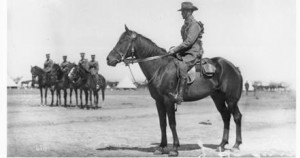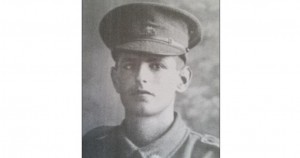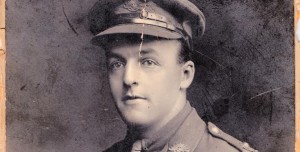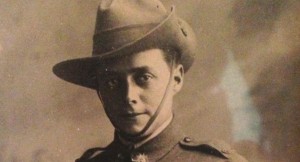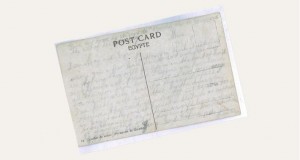WWI Stories – Roy Holloway
Ballarat
Les Holloway shares the story of his father, Roy Holloway.
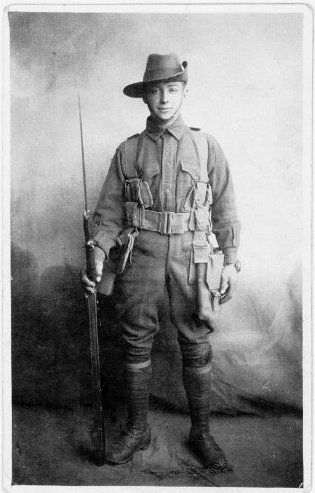 Roy Holloway, my father was just an ordinary Aussie bloke, loved his sport but not schooling. His father was a gold fossicker – with very little luck. Roy grew up in tough times – losing his mother at 10 years of age and then shuffled between other members of his family. Roy was finally raised in Ballarat by his grandparents. Like many other ordinary Aussie blokes, Roy was keen to be part of the ‘great overseas adventure’ proposed by the then Australian Government. He signed for King and Country and a chance to see the world at Broadmeadows in Melbourne as a 17 year old in September, 1914.
Roy Holloway, my father was just an ordinary Aussie bloke, loved his sport but not schooling. His father was a gold fossicker – with very little luck. Roy grew up in tough times – losing his mother at 10 years of age and then shuffled between other members of his family. Roy was finally raised in Ballarat by his grandparents. Like many other ordinary Aussie blokes, Roy was keen to be part of the ‘great overseas adventure’ proposed by the then Australian Government. He signed for King and Country and a chance to see the world at Broadmeadows in Melbourne as a 17 year old in September, 1914.
Allocated to the 14th Battalion he soon set sail to Egypt on the HMAT Ulysses in December, 1914. His world was soon turned on its head at a place called Gallipoli in the Dardanelles, and from there it just got worse for him and thousands of other soldiers in France and Belgium. Roy was either the luckiest or unluckiest soldier. He was wounded at Pozieres, repatriated to England and returned to his unit for the Battle of Bullecourt. He was again wounded, and this time, captured by the Germans to spend 20 months as a POW at a camp named Soltau. On his return home after 5 years of war, Roy met his wife, Adele at the family ‘coming home party’. They married in 1922 and lived a fulfilling life raising six children – five girls and at last, one boy – me!
Being the youngest in a family of six, I did not get to understand much about Dad’s war-time experiences until recent years. Since 2006 I have devoted many hours in researching and writing about my father’s travels in the great war. If he was alive today I would have great joy in putting my arms around his shoulders and saying ‘sorry, Dad’. Fortunately for me and my sisters, Roy at least kept a diary through a two year period of the war. As well we have many letters Roy wrote home to his sister, Lottie. From these remarkable sources we have a snapshot of what he endured during the carnage and unimaginable horror of war.
The Centenary will be an opportunity to reflect on the gallantry and honour of all soldiers. The Aussies in particular knew nothing of war. They were generally men of the land; farmers, workers – hard workers who knew a thing or two about mateship. Training in desert sand did not prepare them for the steep ravines of the Gallipoli Peninsula, the carnage of the Somme and the thick glutinous mud of Flanders. I would hope that we focus on what was created by the gallantry of the ANZACS, on how the current generation can learn and understand what courage, sacrifice, respect and mateship is all about, and why it is so important to reinforce these principles in the present day.
I have written a document of Roy’s war-time experiences with the focus on exerts from the diary and letters that reflects on his feelings towards his family at home, and how badly he missed them. This document, in part, tells Roy’s journey in the Great War. It mirrors that of thousands of ordinary Aussie blokes and girls. I’m proud of them and so should all Australians be. Along with the diary, letters and other postcards etc, is a series of black and white photographs taken at the POW camp at Soltau, Germany. They are beautifully preserved and show many aspects of life within the camp, including many of the prisoners from Britain, France, Belgium and elsewhere. I have had the privilege of visiting the Gallipoli Peninsula with a Conservation Volunteer group in 2009 and in a private tour, Commemorative and War Grave sites through France and Belgium in 2013. My three sons have also visited the Gallipoli Peninsula, two of them this year.




